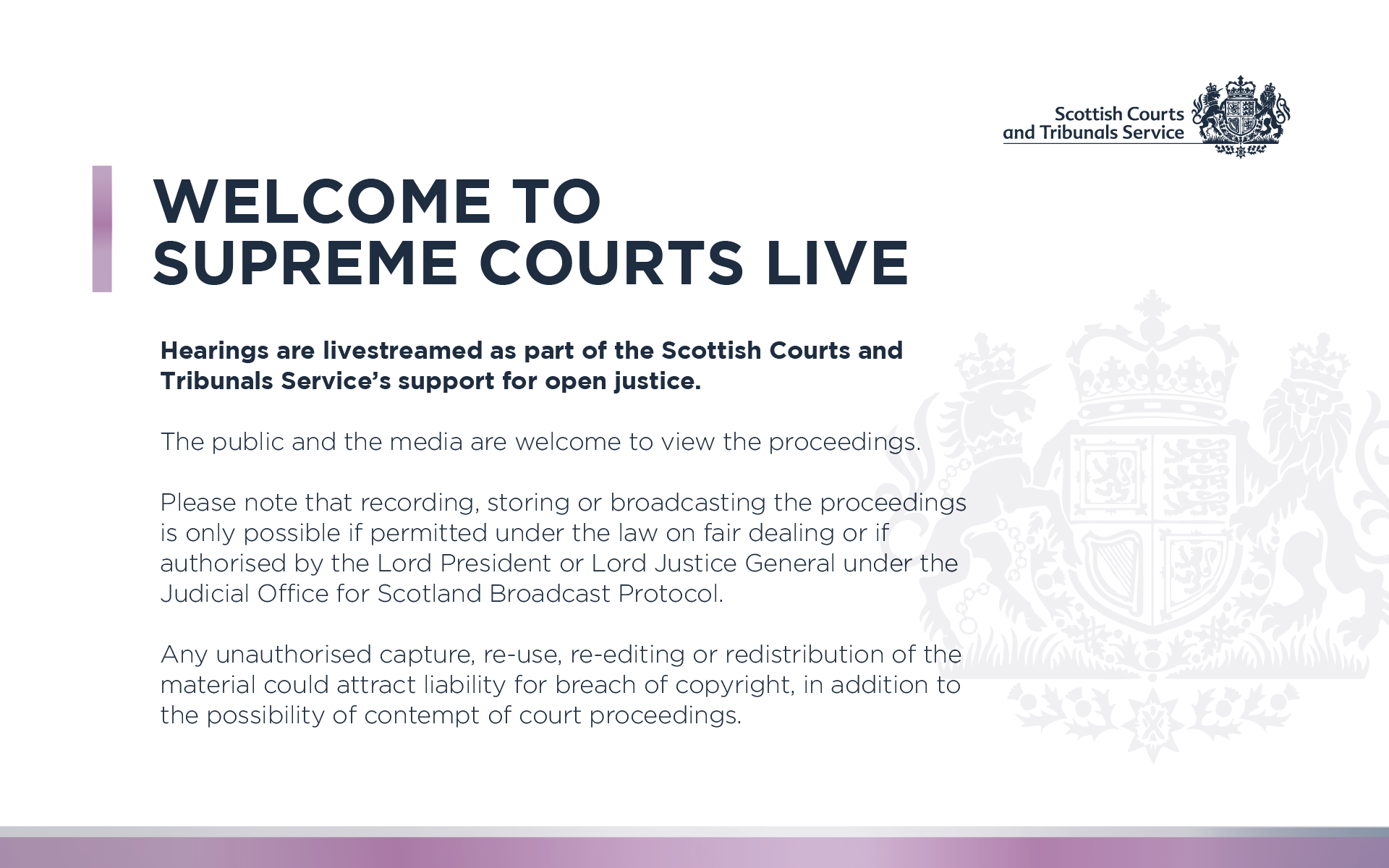Case description
This reclaiming motion (appeal) is brought by the Bank of Scotland against a decision of the commercial judge to allow DMWSHNZ’s claim against them to proceed to a proof (a civil trial).
DMWSHNZ Limited was a subsidiary of the Bank. In September 1998, DMWSHNZ sold its interest in its own subsidiary, Countrywide Banking Corporation Limited. The sale price created a chargeable gain (an increase in an asset’s value on which corporation tax on capital gains is payable). The sale price was paid to DMWSHNZ in loan notes, and the liability to pay the corporation tax on the sum was deferred until the loan notes were redeemed. In the meantime, DMWSHNZ made provision in its balance sheet for its tax liability.
By December 2002, DMWSHNZ had become a shell company. Its business activities involved simply receiving the interest payable on the loan notes, settling the tax payable on the interest payments, and sending the balance as a dividend to its shareholder - the Bank. DMWSHNZ alleges that, if matters had continued in that vein, it would have been in a position to pay its corporation tax liability when the loan notes matured.
Instead, in 2003, Project Raindrop was implemented. This was a tax avoidance scheme designed by Ernst & Young to offset losses in split capital investment trusts, which were indebted to the defenders, against taxable gains in certain of the defenders’ subsidiaries. The aim was to reduce the tax liability of the banking group as a whole and to maximise the group’s returns on certain outstanding debts. Put shortly, the scheme involved matching DMWSHNZ’s tax liability arising from the sale of Countrywide Banking Corp, with the capital losses of an insolvent debtor of the Bank, Geared Income Investment Trust. There was a series of complex legal steps involved in the scheme, but the net result was that DMWSHNZ elected to transfer its gain on the loan notes to a subsidiary of GIIT, GIIT Realisations 3 Limited, under s 171A of the Taxation on Capital Gains Act 1992. The gain would be netted off against losses available to GIIT3, thereby wiping out the chargeable gain. DMWSHNZ also paid £26.6 million to GIIT3 as the consideration for the election. This money was in turn paid to GIIT as a dividend, who then paid it to the Bank in satisfaction of GIIT’s debt. DMWSHNZ was left without tax liability, and without any notable assets.
The scheme failed. HMRC opened an enquiry into DMWSHNZ’s tax return. On 8 November 2007, HMRC advised that it considered the election under s171A had been ineffective. As a result, DMWSHNZ was still liable to pay the corporation tax. That liability amounted to not less than £26.6 million. DMWSHNZ did not have sufficient funds left to meet the debt, and became insolvent.
DMWSHNZ alleges that, in directing the company to participate in Project Raindrop and pay over the election consideration to GIIT3, the Bank was acting as a shadow director of DMWSHNZ. It alleges that the Bank orchestrated the scheme for its own benefit, and without regard to the best interests of DMWSHNZ. It seeks recovery of the £26.6 million from the Bank.
Following a hearing, the commercial judge held that DMWSHNZ’s claim could proceed to a proof. Bank of Scotland appeals that decision, and asks the court to dismiss the claim in its entirety. The First Division will hear the appeal on Tuesday 4 June 2024.

